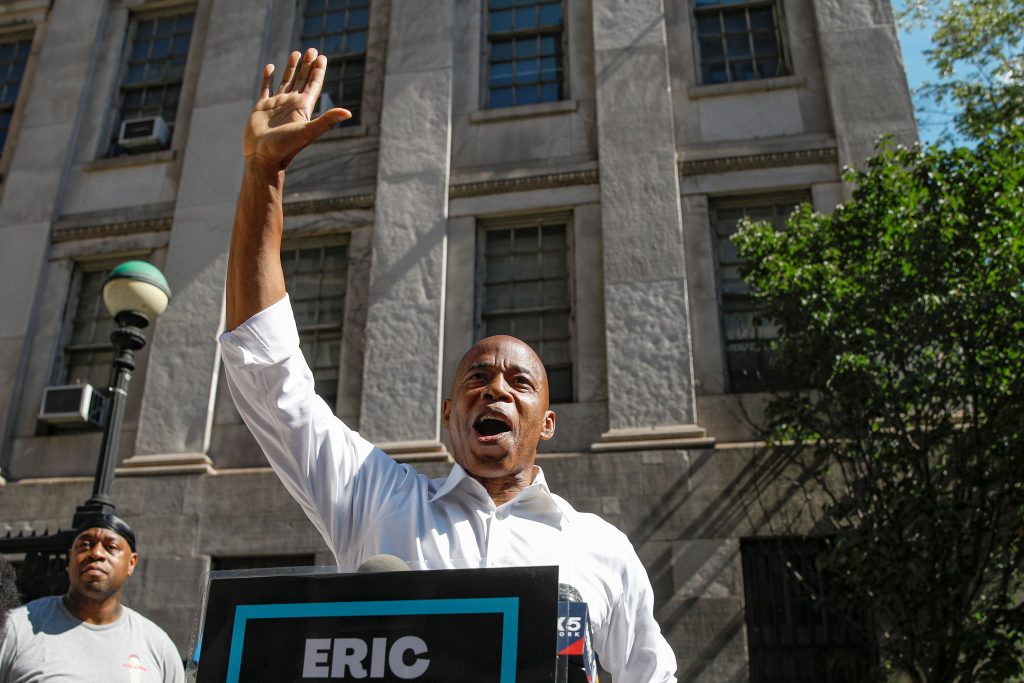By Daniel Rose
New York’s presumptive incoming mayor, Eric Adams, will confront daunting conditions more alarming than those imaginable only a short time ago. A man of beliefs and convictions but open to discussion and – where indicated – prudent compromise, Eric Adams may be able to provide the effective leadership New York desperately needs.
The immediate demands he faces will be to: a) restore public confidence in re-examined police and court procedures for the just and widely-acceptable provision of “law and order”; b) resume the city’s pre-Epidemic economic growth; and c) strive to reduce our notoriously wasteful and inefficient City government operating costs, among the nation’s highest per capita.
Next in priority for the City’s immediate well-being will be productive economic efforts to: a) recycle our present surplus of office, hotel and retail space into badly needed housing, especially for low-income tenants; and b) repair the frightful state of our physical infrastructure (rated by the American Society of Civil Engineers as among the worst in the nation).
A further priority for the next administration will be to enhance and strengthen New York’s present formidable competitive advantages – and to promote them vigorously so as to attract even more visitors, investors, students and potential new residents. Life sciences, the world’s fastest growing industry, is already a particular New York strength , as is cybersecurity, and local efforts in these growth fields must be encouraged,
Governmental involvement – both through regulation and direct action — in the provision of health, education and social services – to the general public and to the most disadvantaged — are challenges of continuing concern. Particularly inadequate is our providing for the seriously mentally ill, who constitute a high percentage of our imprisoned and who need treatment rather than jail time.
Each area of municipal concern mentioned above is complex and will involve controversy. An informed and engaged public, knowledgeable and voluble, can help the new administration achieve goals that are possible only with the constructive support of a widely-perceived public consensus.
In criminal justice, the field in which he is most deeply absorbed, Adams believes he can save $500 million annually by replacing police officers with lower cost civilian workers in routine clerical activities. He intends to diminish violent crime by focusing on sophisticated gun control methods and by standing up to notorious criminal gangs using plain-clothes anti-gang squads. His most important justice effort may be to identify and to eliminate “bad cops” and to help well-trained “good cops” relate more sensitively to the communities they serve.
Our real estate recycling challenge faces the diminishing demand for New York’s 500 million sq ft of office space, 140,000 hotel rooms and 270 million sq ft of retail space. Millions of square feet of antiquated, low-quality office space can be transformed soon into thousands of apartments, and surplus hotels can be converted to hospital uses, as soon as appropriate (and necessary) re-zoning, land use and density controls are reviewed, reconsidered and modified. Adams espouses imaginative efforts to sell development air rights over NYC Housing Authorities projects; he approves of congestion-pricing to help pay for transportation and green infrastructure costs; and he supports Business Improvement Districts with their variety of ‘start-ups’.
In education, Adams understands how dramatically effective charter schools have been for low income minority students and he approves of their expansion. Community colleges, of which he is a warm supporter, he sees as effective vehicles for the vocational training, mentoring and career guidance he endorses. Swimming against the tide of much public sentiment, Adams approves of appropriate objective testing of students and seeks more effective vehicles for helping disadvantaged students to pass those tests and to be advanced accordingly. Adams also feels strongly that even our poorest and most disadvantaged should have access to the Internet, which has become a fundamental necessity in the 21st century.
As a proactive rather than merely reactive mayor, Adams may be able to combine the optimistic vision of a John Lindsay with the pragmatism of a Michael Bloomberg. Eric Adams will be our leader and his successes will be our successes; we wish him well.

